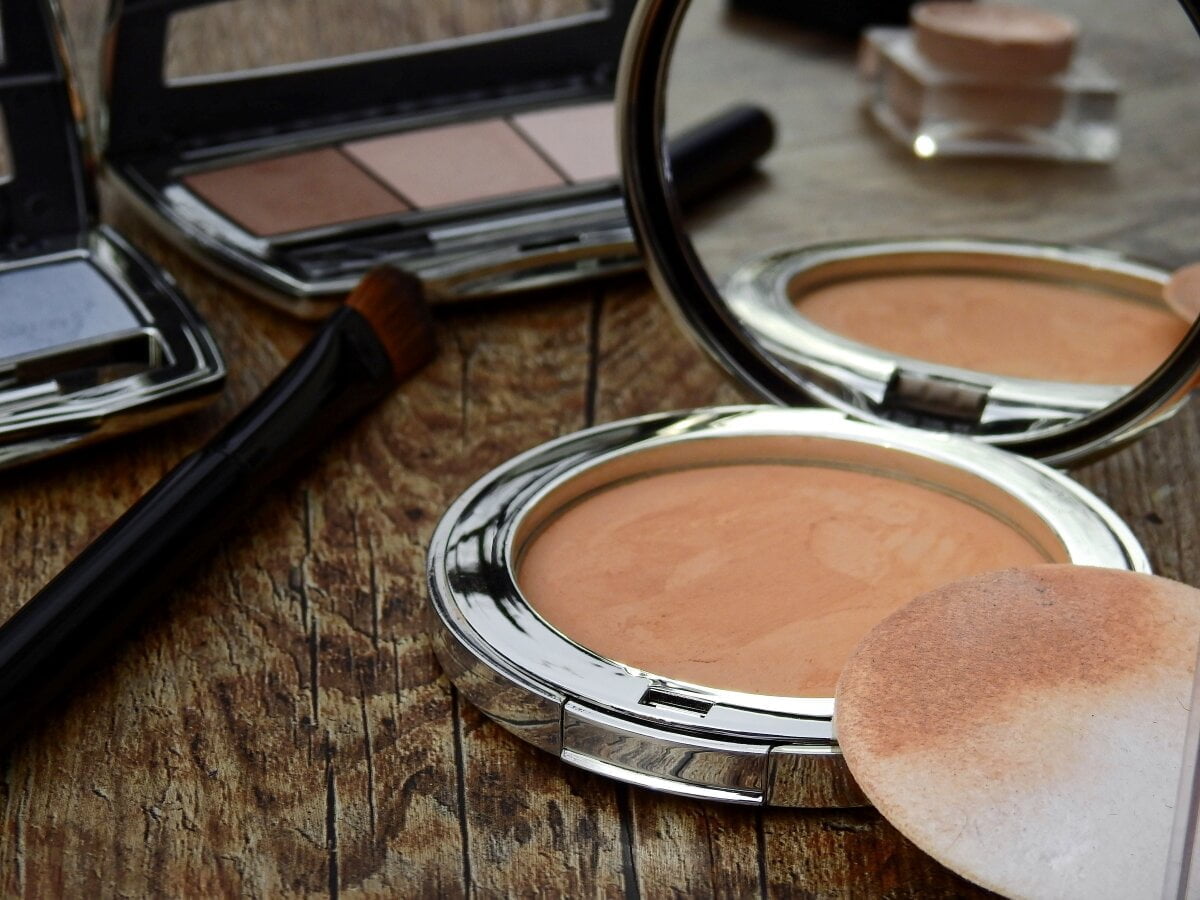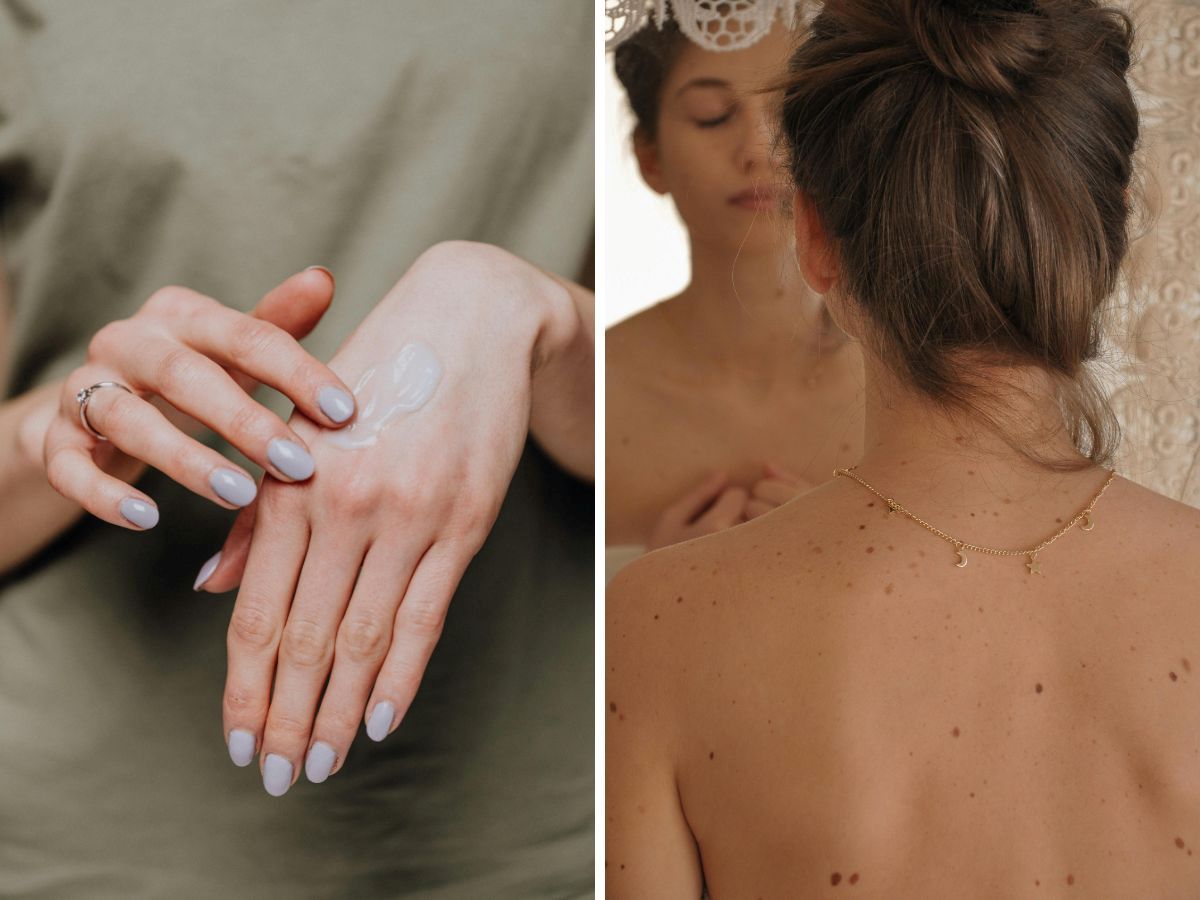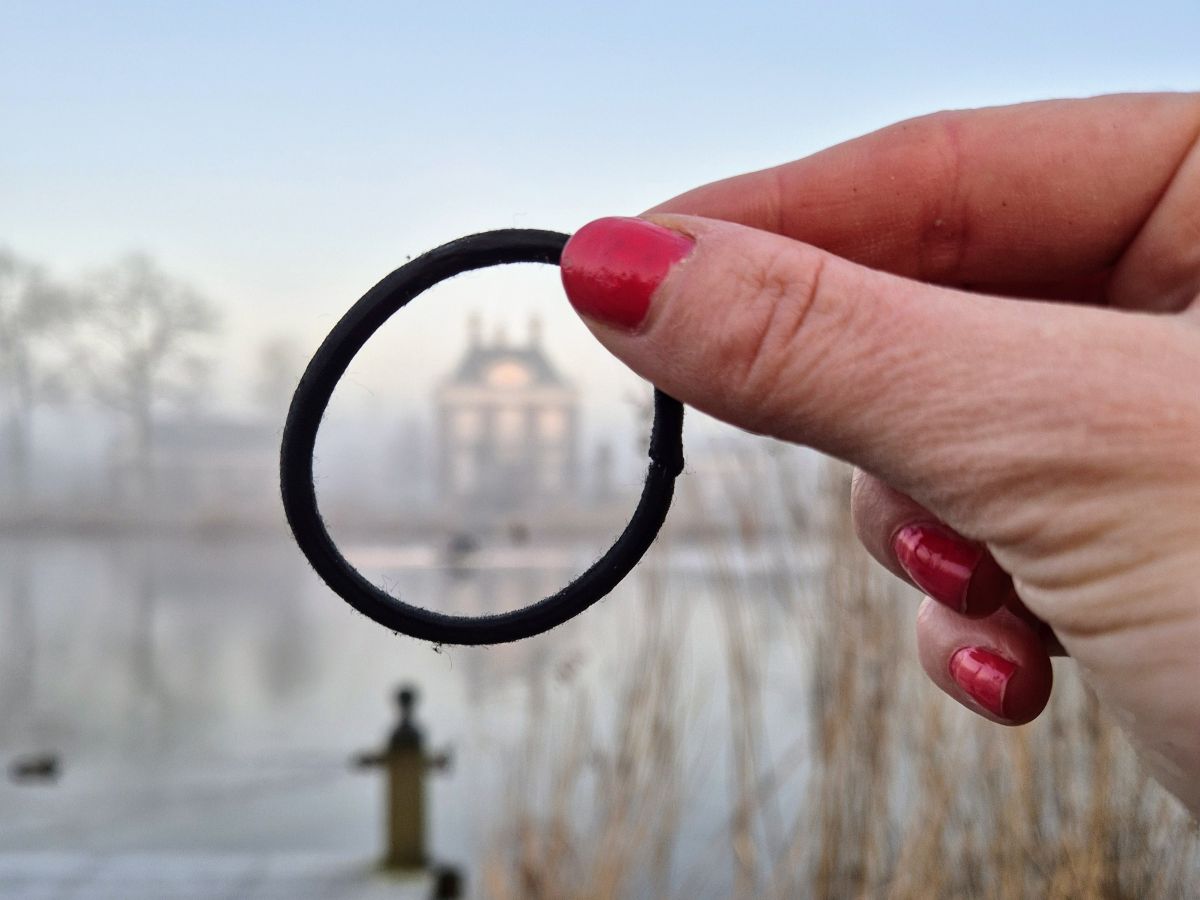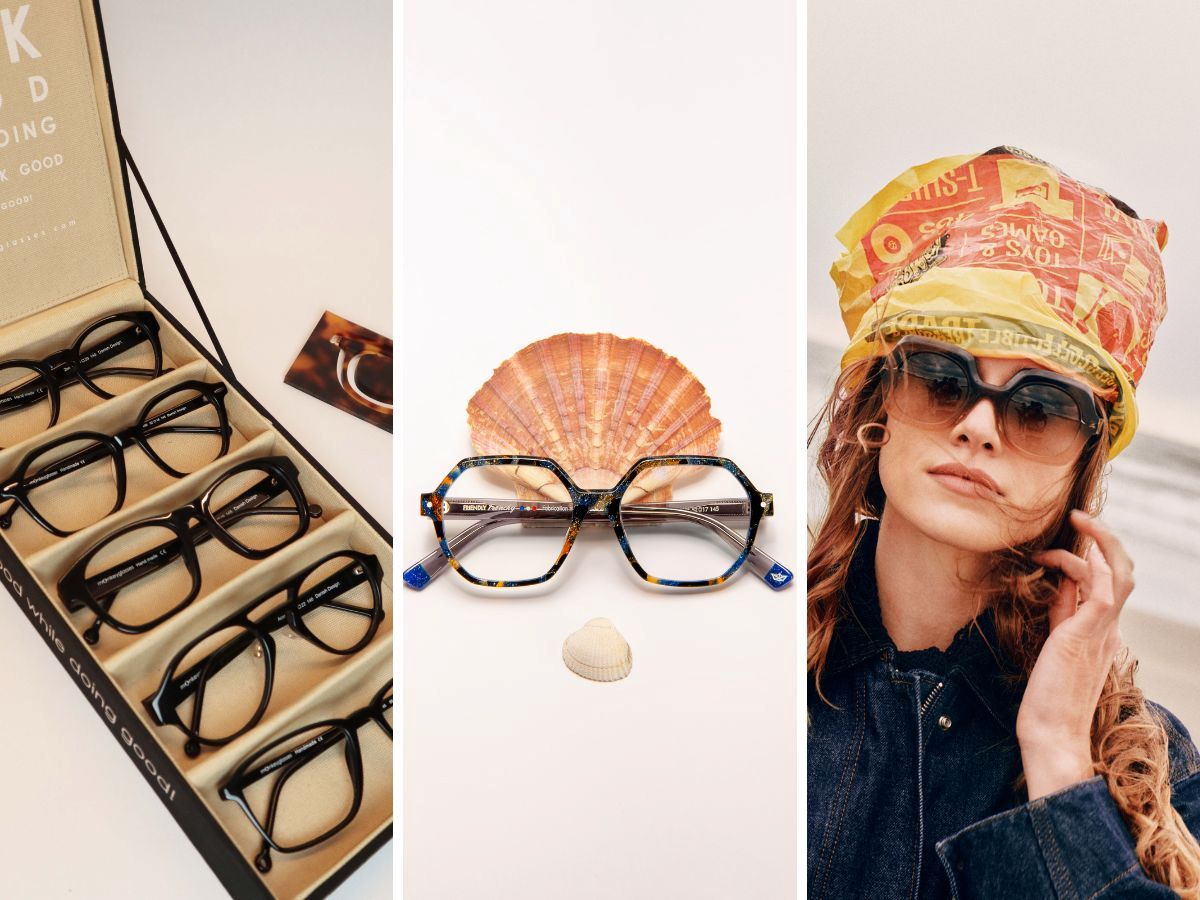Do you suffer from puffiness, blemishes or spots on your face? And does it bother you? While no one is perfect and we should embrace that more, a little concealer or foundation can work wonders. We, a team of mostly 30-somethings, know all about this. But do you actually know what you put on your face? And are there any sustainable alternatives to foundation and concealer? We from thegreenlist.nl sought it out for you.
What are foundation and concealer made of?
Admittedly, we could live quite well without foundation and concealer. But I am still very happy that these products exist, because I like to get rid of my puffiness and that pale face a bit in winter. And you know what the great thing is: there are plenty of sustainable brands that offer good foundation and concealer. That way you put less strain on the environment and it's also better for your skin.
What is the difference between foundation and concealer?
Foundation is the basis of your make-up. So it is the first layer you apply to your skin, after a primer if necessary. Foundation makes your face look even. Don't use too much for a natural look. Concealer comes after foundation and is used to conceal imperfections. That is why concealer is often slightly thicker than foundation.
Source: Elle
‘Normal’ foundation and concealer often contain substances that are not so nice for the earth and probably not for our health either. Since the list of ingredients in make-up is usually long and complicated, I won't bother you too much with difficult terms and, cliffhanger, I'll have some handy tips for you later. But there are still a few ingredients I want to touch on because you probably prefer to avoid them:
Parabens in foundation and concealer
Parabens are chemical preservatives that make products last longer by preventing the growth of bacteria and fungi. Very nice in itself, but parabens are suspected of affecting coral and can disrupt our hormones. For one type of paraben, there is already scientific evidence that it can disrupt hormones, namely butylparaben. And yes, it is still used in some concealers and foundations too.
Microplastics in foundation
As with many other beauty products, foundation and concealer often contain microplastics. Microplastics make the products spread well, but unfortunately they are not so good for nature and very probably not for our health either. Besides, you can do without them and there are plenty of alternatives. Microplastics have already been found all over the world, even at the North Pole and in the human body. Since microplastics do not decompose, it is high time to make sure there are no more. From 15 October 2023, the European Commission microplastics in cosmetics banned. A good step, although it will take some time for all cosmetics containing microplastics to disappear from the shelves, as there is a transition period of 4 to 12 years.
Mica in foundation and concealer
Then you have mica. Have you ever heard of mica? This shimmering mineral, which we previously wrote an article about, is found in super many products, including beauty products such as foundation and concealer. Although mica is a natural mineral, it is often associated with child labour and poor working conditions. If you want to check the ingredients list of foundation and concealer with a handy app (more on this later), mica is often not on the red list because it is a natural mineral. Mica is therefore used in some natural foundation and concealer, and in this case it is advisable to find out if the mica is produced in a more sustainable and responsible way. For some brands, we have already done that for you, as you will read later.

Check ingredients of your foundation for microplastics and other substances.
Octinoxate and oxybenzone in make-up
Some foundations protect your skin from the sun. Very convenient, but you would prefer this sun protection in a sustainable way. Two notorious substances found in many sunscreens and also in some foundations with SPF (sun protection factor) are octinoxate and oxybenzone. These substances affect coral and marine life. Fortunately, there are more sustainable alternatives to protect you from the sun and these are the mineral filters zinc oxide or titanium dioxide. Just be careful that these do not contain nano particles (non-nano is better) and are uncoated. Still following along? You can read all about it in this article. Of course, what you can also do is choose a foundation without SPF and, when the sun shines, apply a long-lasting sunscreen under your foundation on your face. This usually protects you better from the sun too, as most people don't put on enough foundation to ensure really good protection.
PFAS, PEG, silicones and mineral oils in make-up
A few more ingredients found in foundation and concealer that are not good for people and the environment: PFAS, PEG, silicones and mineral oils. Since the list of complicated synthetics is now getting very long, I think it would be a good idea to look at how we can easily find foundation and concealer that are indeed sustainable.


(Cheap) make-up may contain harmful substances such as microplastics and PFAS.
Alternatives: is there sustainable foundation and concealer?
Let's start with the good news: there are plenty of brands and online shops offering sustainable foundation and concealer these days. Because the term ‘natural’ doesn't always mean anything and because the ingredient lists of foundation and concealer are long and complicated, I have looked up a few resources that can quickly help you find more durable concealer or foundation.
Sustainable foundation and concealer: vegan and animal-free
Vegan or cruelty-free sounds pretty sustainable right? Unfortunately, these terms do not mean everything. A vegan beauty product contains no animal ingredients, in which case no animals were used in its production. Cruelty-free means animal-free: there may still be animal products in your beauty product.
But animal testing is banned anyway, right? I hear you thinking.... True, but it's a bit more complicated. In Europe, it is indeed not allowed to sell cosmetics or personal care products tested on animals. But it could be that a beauty brand sells products here that are not tested on animals in Europe, but are outside Europe, for instance because legislation requires it. So that way, a beauty brand is still participating. To make it even more complicated, there are also a number of exceptions to European regulations which unfortunately still means that not all cosmetics sold in Europe are 100% animal-free.
So in short, if you care about animal welfare, you prefer foundation and concealer that are vegan as well as cruelty-free. At animalrights.nl you will find a handy list of brands that are 100% animal-free and 100% vegan. Good vegan and cruelty-free labels can also help you. Examples include The Vegan Society's Sunflower and PETA-Approved.
Sustainable foundation and concealer: does the product have a label and what are the ingredients?
What vegan and cruelty-free doesn't tell you is what ingredients are in your concealer or foundation and whether they have been sourced in a sustainable way. A vegan and cruelty-free concealer or foundation can still be made from non-fine synthetic materials such as microplastics or from natural materials that have undergone very intensive farming. The best sustainable choice is a sustainable concealer or foundation whose ingredients have been sourced in an eco-friendly way, where no deforestation or intensive farming has taken place. Again, labels can help here. For foundation and concealer, the labels you can look out for include Ecocert and Cosmos.
Come across a hallmark you are not familiar with or want to know more about a hallmark? Take a look at the Label guide from Milieu Centraal.
There are also handy apps that help you identify harmful ingredients. I personally like the app INCI Beauty fine to use.
Sustainable foundation and concealer: free of microplastics
It is better for the environment and probably for your health to choose beauty products without microplastics. You can easily check whether a product contains microplastics with the free app Beat the Microbead. Tip: look up the concealer or foundation you have your eye on online and take a screenshot of the ingredients. That way, you can quickly and easily check the ingredients in the app.



Left: with the app INCI Beauty you can check whether a product is free of harmful ingredients. Right: with the app Beat the Microbead you can check whether a product is free of microplastics.
Which foundation and concealer are long-lasting?
Are there any foundation and concealer at all that meet the above criteria? Yes, there are. Some examples:
Durable concealer
- Avril - Liquid Concealer: vegan, animal-tested, microplastic-free, COSMOS ORGANIC and ECOCERT certified and budget-friendly too.
- Benecos - Cover Stick: vegan, animal-tested, microplastic-free, COSMOS ORGANIC certified and budget-friendly too.
- Inika - Sheer Coverage Concealer: vegan, animal-tested and microplastic-free. Has no seal of approval, but is free of harmful substances according to INCI Beauty.
- Madara Skincare - Luminous Perfecting Concealer: vegan, animal-tested, microplastic-free and has the Ecocert seal of approval. This one does contain mica, but is child-free, according to the brand.
- PHB Ethical Beauty - Cream Concealer Stick: vegan, animal-tested and microplastic-free. Has no seal of approval, but is free of harmful substances, according to INCI Beauty. This one does contain mica, but is child-free, according to the brand.
Sustainable foundation
- Avril - Foundation Sésame: vegan, animal-tested, microplastic-free, ECOCERT-certified and budget-friendly too.
- Benecos - Natural Foundation Stick: vegan, animal-tested, microplastic-free, COSMOS ORGANIC certified and budget-friendly too. This one does contain mica, but according to the brand, it comes from certified mines.
- Inika - Liquid foundation: vegan, animal-tested and microplastic-free. Has no seal of approval, but is free of harmful substances according to INCI Beauty.
- Madara Skincare - Soft Glow Foundation: vegan, animal-tested, microplastic-free and has the Ecocert seal of approval.
- PHB Ethical Beauty - Beauty Liquid Flawless Foundation: vegan, animal-tested and microplastic-free. Has no seal of approval, but is free of harmful substances, according to INCI Beauty. This one does contain mica, but is child-free, according to the brand.
Are you looking for better beauty brands for both make-up and daily care? We made a complete list earlier. Handy though, take advantage of it!
Are long-lasting foundation and concealer as good as ‘regular’ foundation and concealer?
Saskia van thegreenlist.nl: ‘When I needed new concealer a few years ago, I switched to Madara's concealer on the advice of my followers and am very happy with it. This foundation and concealer spread well, it stays on well and it is sufficiently opaque. They also have various shades for every skin type and season.’
Keeping foundation and concealer longer
You can store foundation and concealer for one to two years. The expiry date can be found on the packaging in the icon with the lid: the M stands for the number of months the product is still good after opening. Has your foundation become clumpy and does it no longer spread well? Then you can liquefy it again by holding it under the hot tap for a while. More beauty product storage tips you can read in this article.
Will you choose sustainable foundation and concealer from now on?
The quality is usually just as good, there is plenty of choice and it is better for the earth and for yourself. So plenty of reasons to choose sustainable foundation and concealer the next time you need it. If you have any tips, be sure to let us know! You can get in touch with thegreenlist.nl via the follow and contact buttons at the bottom of the page.
More sustainable tips from thegreenlist.nl
- You can read why packaging is usually not the biggest problem in this article on plastic packaging.
- Looking for long-lasting mascara? We figured that out for you too.
- Or wondering what's wrong with shampoo? Read all about it.
Sources: Niks Nieuws, wherezitwarin.nl, Beat the Microbead, the Washington Post, Dr Jetske Ultee, Oekotest.de, Dutch Health Store. Photo credits: main image: Pixabay (Pexels), woman with foundation: Alena Darmel (Pexels), make-up with light background: Hitesh Dewasi (Unsplash), make-up brushes: Raphael Lovaski (Unsplash), hands with foundation: Karolina Grabowska (Pexels).












